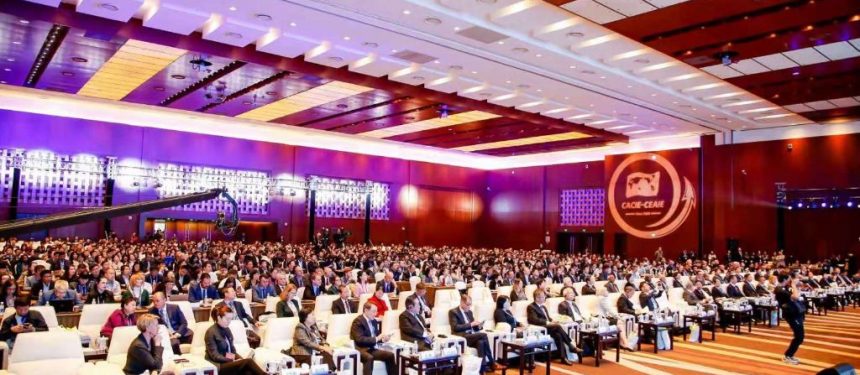A new cooperation platform to promote international relations and a greater emphasis on education within the Belt and Road Initiative have been discussed as part of China’s ‘blueprint’ for its international education strategy.
News and business analysis for Professionals in International Education
Have some pie!
China’s int’l ed blueprint discussed at CACIE
 CACIE has become an important bridge for education between China and the world. Photo: cacie.cn
CACIE has become an important bridge for education between China and the world. Photo: cacie.cn The discussion took place at the 20th China Annual Conference for International Education in Beijing in October, where education minister, Chen Baosheng, spoke about China’s Education Modernisation 2035 Plan during one of the plenary sessions.
“That would mean faculty exchanges and partnerships… further building up China as a study abroad destination”
In his speech, Baosheng said that China would abandon protectionism and unilateralism, and look towards future development trends for world education.
He also said China will build an international cooperation platform that will promote the construction of new international relations.
Speaking to The PIE News, COO of Sunrise International Education, David Weeks, said the 2035 plan is “significant” in that it lays out some objectives in China’s education policy.
“But, as is often the case with big plans from the central government, there’s not much in the way of specifics, which is understandable on some level if it’s supposed to be a blueprint for the next 15 years,” he added.
Weeks said that of particular interest is the proposed greater emphasis on education in the Belt and Road Initiative, a multibillion-dollar global development strategy adopted by the government to improve connectivity and cooperation on a transcontinental scale.
“That would mean faculty exchanges and partnerships with BRI countries, further building up China as a study abroad destination, getting Chinese qualifications accepted abroad and vice versa,” Weeks explained.
As part of the BRI, China has launched initiatives including exchange programs with the Philippines and academic collaborations in the fields of humanities and social sciences with universities in nine African countries.
The plan explains that the government is seeking to expand the Confucius Institute, a language program set up in university campuses around the world, that promote Chinese language and culture.
However, in recent times, the Confucius Institute has been the subject of some controversy.
Earlier this year, Human Rights Watch advised universities to reject offers to host Confucius Institutes on global campuses, and amidst claims from the FBI that spies operate in Confucius Institutes, a number of higher education institutions in the US have closed branches of the program.
Despite this, China will continue with its soft power agenda in education and has pledged to accelerate the construction of overseas international schools with Chinese characteristics.
The government wants to encourage institutions in other countries to build Luban workshops that will teach students vocational skills, and there are also plans to set up Confucius classrooms in primary and secondary schools around the world.
Other objectives in the 2035 Plan include a push to ‘strengthen cooperation with international organisations and multilateral organisations such as UNESCO’ and to ‘improve the quality of Sino-foreign cooperation in running schools’.
The government also plans to implement the China Study Abroad Program, which it says will establish and improve the quality assurance mechanism for studying in China.
Still looking? Find by category:


